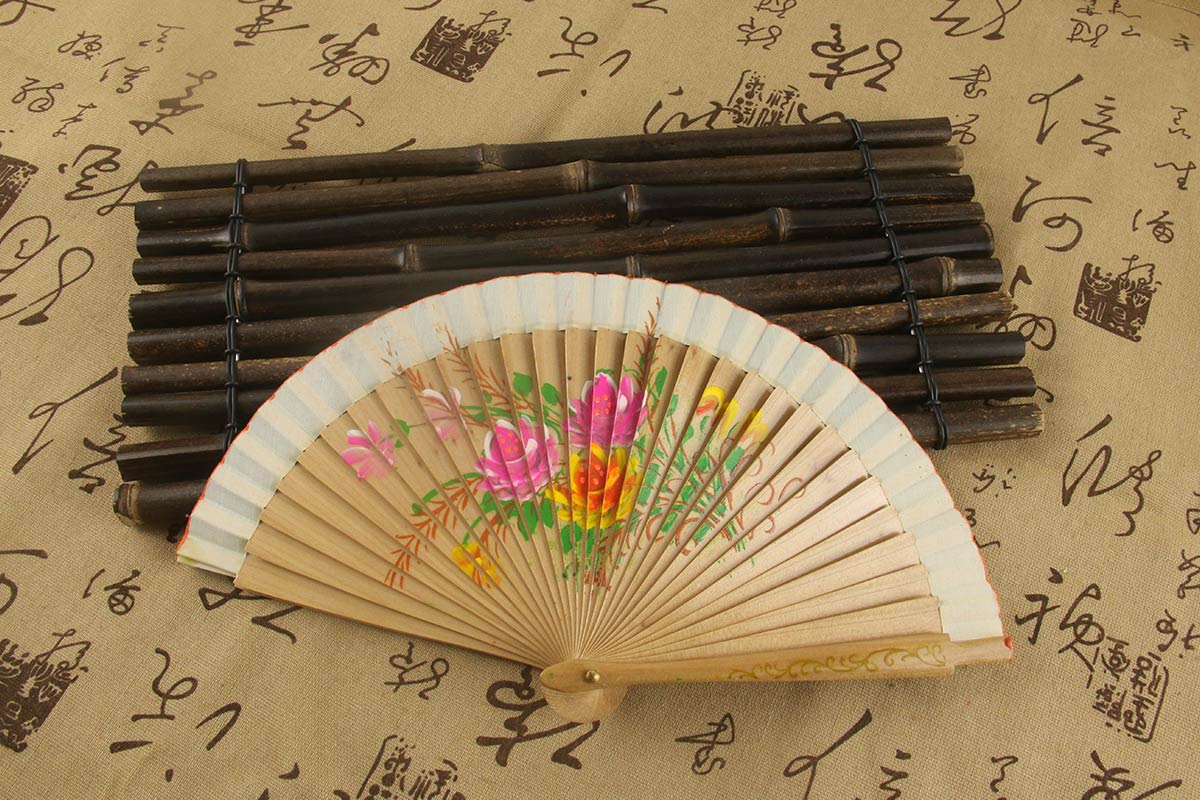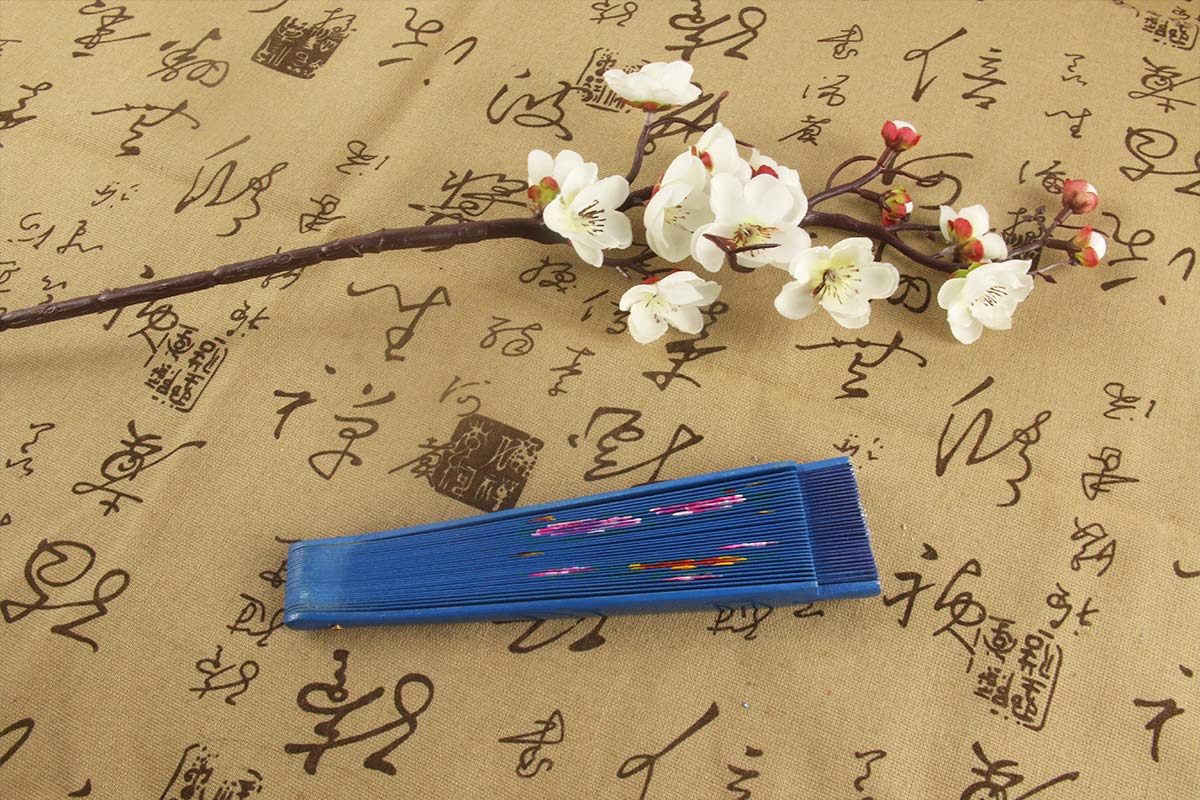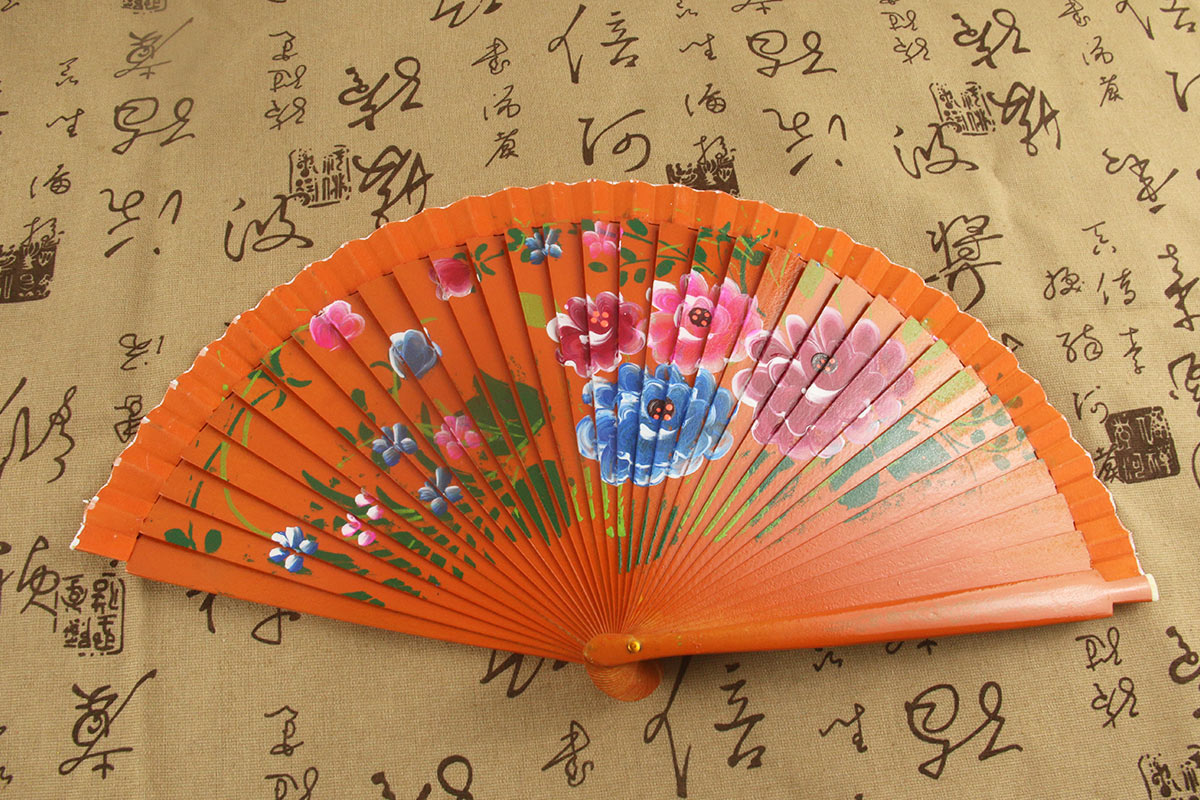The Function You Might Overlook: A Folding Fan as a Generator of Spatial Boundaries
When people discuss folding fans, their first thoughts tend to be about craftsmanship, historical significance, or cultural symbolism. But in deeper cultural terms, a folding fan possesses a rarely acknowledged role: it subtly creates distance and defines personal space.
Unlike today’s reliance on earbuds, screens, or media bubbles to mark mental solitude, people in traditional Eastern societies used physical boundaries to manage social proximity. Among the most discreet and refined of these tools was the humble folding fan.
Historically, the fan went beyond providing relief from heat or serving as a status symbol. It helped individuals negotiate personal boundaries—shielding one’s gaze in public, suggesting status, avoiding unwanted eye contact, or controlling the rhythm of conversation through gesture. In many ways, it was an early and elegant form of spatial management.
How Did Ancient People Use Fans to Say: “Keep Your Distance”?
From historical paintings and literature to theatrical performance, the folding fan has long served as a quiet yet powerful instrument for shaping space.
Scholars and Literati: Creating Aesthetic Distance
In intellectual circles, fans acted like personal perimeters. Opening a fan wasn’t just about showcasing art—it was a way of framing the self, creating a symbolic barrier between the inner world and mundane affairs. At poetry gatherings or salons, holding a fan signaled a stance of “close but not too close”—much like reading in a café today: enjoying solitude while retaining the freedom to engage.
Women’s Spaces: Signaling Emotion and Setting Limits
In classical portraiture and opera, women’s gestures with fans were rich with meaning. A fan could softly veil the face in flirtation, or define body boundaries in dance. In their hands, fans became tools of graceful defense—shielding against gazes, regulating exposure, and conveying modesty. This was especially vital within traditional codes of etiquette.
Commerce and Officialdom: Mediating the Temperature of Interaction
In business and bureaucratic settings, fans played a role in moderating conversational tone. A closed fan suggested conclusion and restraint; a slightly opened fan implied openness or goodwill. This silent vocabulary created room for pause, tact, and subtle negotiation—principles still echoed in modern professional etiquette.
The Folding Fan’s Spatial Role Continues Today
Though rooted in historical context, the fan’s spatial sensibility continues to evolve across several modern domains:
Performing Arts: Onstage, fans are used to manipulate gaze, establish bodily territory, and choreograph presence with remarkable precision.
Cultural Installations and Rituals: In immersive exhibitions or ceremonial settings, fans help create zones of focus or symbolic separation—defining roles between host and participant.
Style and Social Poise: Today’s cultural and creative fans still communicate personality and social tact, helping users project sophistication while maintaining elegant boundaries.
How Craftshistory Designs Fans That Embody “Spatial Awareness”
At Craftshistory, we believe cultural experience isn’t a label—it’s a sensed relationship between person and object. Our fans reflect this through:
Structural design: By emphasizing the natural arc of the fan’s ribbed frame, we allow users to create a visual “safety zone” when opened—forming an intimate, curved perimeter.
Optimized unfolding mechanics: We refine tension and elasticity so each open and close feels intentional—like managing a space, not just manipulating a tool.
Conclusion: A Folding Fan as an Invisible Curtain of Grace
When you next hold a Craftshistory fan, consider its deeper role. It’s not just a craft to show off, a fashion accent, or a cultural token—it’s a gentle yet assertive way to express your personal boundary, rooted in centuries of quiet finesse.
In an age of noise and forced interaction, perhaps what we most need is the soft right to solitude—and what better companion than a fan that opens and closes at your will, letting culture flow with every movement.






